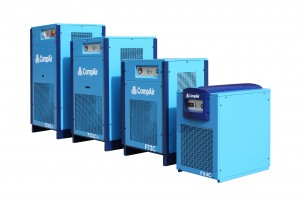The EU F-Gas Regulation no. 842/2006 imposes obligations onto ‘equipment operators’ to minimise emissions of F-Gases (including HFCs – the most common type of refrigerant) which affect global warming if released into the air. The legal responsibility for adherence to the regulations is on the equipment operators as they have power over the technical functioning of the equipment.

In regard to stationary refrigeration, air conditioning and heat pumps, equipment operators must:
• Prevent leakage and repair any leaks as soon as possible using certified personnel
• Maintain records of all refrigerants in equipment with a charge of 3kg or more (unless the equipment is hermetically sealed in which case this goes up to 6kg)
• Keep specific records identifying equipment containing a charge of 30kg or more (quantity, type of f-gas and date/results of leakage checks)
• Follow a leak checking schedule as follows:
o Equipment with a charge of 3kg or more (unless the equipment is hermetically sealed in which case this goes up to 6kg) – annually
o Equipment with a charge of 30kg or more – once every 6 months
o Equipment with a charge of 300kg or more – once every 3 months (unless a leak detection syste
m is installed and then the checking requirement is halved). It is advised that if an equipment operator has equipment totalling over 300kg that an initial leak service is carried out by a specialist where equipment can be plotted and monitored.
In addition to the above conditions of the regulations, it is still advised that equipment under 3kg charge are checked regularly on the basis that prevention is better than cure and an equipment operator is less likely to
get more serious leaks if the smaller leaks are dealt with.
Furthermore, if an equipment operator is using R22 or another HCFC refrigerant then they need to consider a plan of action as after 31st December 2014 the recycled/reclaimed HCFCs cannot be used for plant maintenance. The 2 advised options are:
• Replace the whole plant with a new system – this is expensive option but enables the equipment operator to minimise leakage and maximise energy efficiency.
• Change the refrigerant to a suitable alternative – this is the cheaper option, but the equipment operator will still have to make additional investment to ensure leakage is minimised and reliability /efficiency maximised.
Contact Airmech for any further advice and support regarding F-gas and how to conform on:
Email: sales@air-mech.co.uk
Phone: 02476 345658
Further info:
https://www.gov.uk/managing-fluorinated-gases-and-ozone-depleting-substances#refrigeration-air-conditioning-and-heat-pumps
http://www.acrib.org.uk/fgas